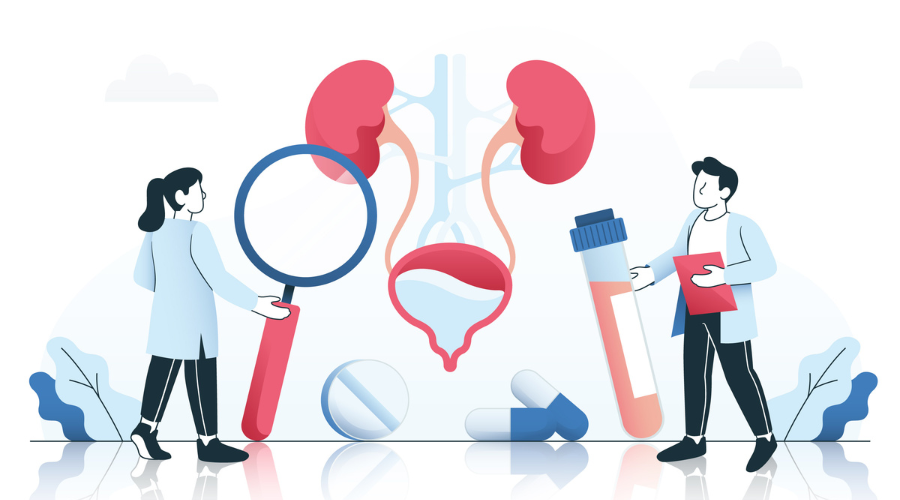Guide Essentiel du Diabete de Type 1
Nov 13, 2024
Type 1 diabetes is like that unexpected plot twist in a movie that you don’t see coming. One day, everything is going well, and then suddenly, your body’s insulin production shuts down. It’s not a lifestyle issue, and there’s no “return button”: it’s an autoimmune disease where your own immune system attacks the insulin-producing cells in your pancreas. So if you or someone you know is managing type 1 diabetes, here’s a look at what’s really going on.
And if you're looking for professional support for diabetes management, check out CongoRx, a platform that connects patients with healthcare professionals to help them manage chronic conditions like diabetes.
What is type 1 diabetes?
Think of insulin as a VIP pass that allows glucose (sugar) to enter your cells and provide energy for your body. With type 1 diabetes, the pancreas stops producing insulin, which means that glucose can’t get into your cells—it stays in your blood, raising your blood sugar levels.
Without insulin, blood sugar levels cannot be regulated, and your body is left without the energy it needs. This is why managing type 1 diabetes often involves daily insulin therapy, where you become the “insulin manager” your body once was.
Symptoms of Type 1 Diabetes
- Frequent urination: High blood sugar levels mean your kidneys have to work harder to eliminate it. Frequent trips to the toilet can be a telltale sign.
- Intense thirst: As your kidneys excrete excess sugar, you lose water, making you dehydrated and very thirsty.
- Increased appetite: Your body isn't getting the energy it needs, so it sends out hunger signals to try to get energy.
- Weight Loss: Since glucose can't enter cells, your body begins to break down fat and muscle for energy.
- Fatigue: Without sugar entering your cells, your energy levels drop.
If you notice these symptoms, it is essential to consult a healthcare professional for a blood test. For advice and more information, visit CongoRx >
Living with type 1 diabetes?
Being diagnosed with type 1 diabetes can be overwhelming, especially if you’re young. But with the right tools and information, it’s completely manageable. Here’s how to keep things under control:
Insulin therapy
Since your pancreas no longer produces insulin, daily insulin injections or an insulin pump are now part of your routine. There are different types of insulin (rapid, intermediate, long-acting), and you will learn how to dose according to your needs.
Blood sugar monitoring
Checking blood sugar levels is essential to understanding how food, exercise, and insulin doses affect you. This can be done with finger prick tests or continuous glucose monitors (CGMs) that provide real-time readings.
Meal Planning
Food has a major impact on blood sugar levels, so learning how different foods affect you is crucial. Counting carbs is common for type 1 diabetics because carbohydrates have an immediate impact on blood sugar. Balancing carbohydrates, proteins, and fats can help maintain stable sugar levels.
Physical exercise
Physical activity is beneficial for everyone and is especially helpful in managing type 1 diabetes. Exercise lowers blood sugar levels, so with proper planning, it can be a great tool for controlling blood sugar. Because exercise affects insulin and blood sugar levels, you may need to adjust your doses or carbohydrate intake before and after training.
Technology and tools
Modern technology can make managing type 1 diabetes easier. Insulin pumps, CGMs, and smartphone apps that track blood sugar, insulin, and carbohydrate intake are revolutionary. They help you manage your condition more effectively and give you real-time information about your health.
Potential challenges and complications
Type 1 diabetes is manageable, but it comes with challenges. Blood sugar levels can be unpredictable and influenced by a variety of factors like illness, stress, and even the weather. Keeping track of all of these things can be exhausting, but over time, you learn how your body reacts.
Managing blood sugar levels is also crucial to preventing long-term complications. Poorly controlled type 1 diabetes can lead to problems like:
- Heart disease
- Kidney damage
- Vision problems
- Neuropathy
Maintaining normal blood sugar levels, getting regular checkups, and adopting a healthy lifestyle are key to reducing these risks. CongoRx can connect you with professionals who specialize in diabetes management, helping you navigate these challenges.
Stay positive and motivated
Managing type 1 diabetes is a daily responsibility, but you are not alone. Support networks, technology, and medical advances make a big difference. Many people with type 1 diabetes lead full, active lives and accomplish incredible things. Athletes, actors, politicians, and others with type 1 diabetes are making their mark on the world.
While type 1 diabetes requires a lifelong commitment, it can also build resilience, self-discipline, and a deeper understanding of health. Every day requires planning and monitoring, but with the right supports and resources, you can live life to the fullest.
If you are looking for expert advice and support, CongoRx is here to help. They offer consultations and access to healthcare professionals who understand diabetes, helping you manage your health journey.
Recent Post

Consultations Medicales Gratuites en RDC – CongoRx Soutient les Victimes du Conflit

Dystrophie Musculaire : Causes, Symptomes et Traitements

Guide Complet sur la Meningite : Diagnostic et Soins en Ligne

Comprendre les Cephalees en Grappe : Causes, Symptomes et Traitements | CongoRx

Infections des Voies Urinaires (IVU) : Causes, Symptomes, Prevention et Traitement | CongoRx

Virus HMPV : Symptomes, Transmission et Traitement du Virus Respiratoire

Comprendre le Cycle Menstruel : Guide Complet pour la Sante Feminine

Dengue : Symptomes, Causes et Consultation en Ligne au Congo

Soins de la thyroide : traitements et precautions en ligne

Thyroede : Symptomes, Mesures de Securite et Prevention



